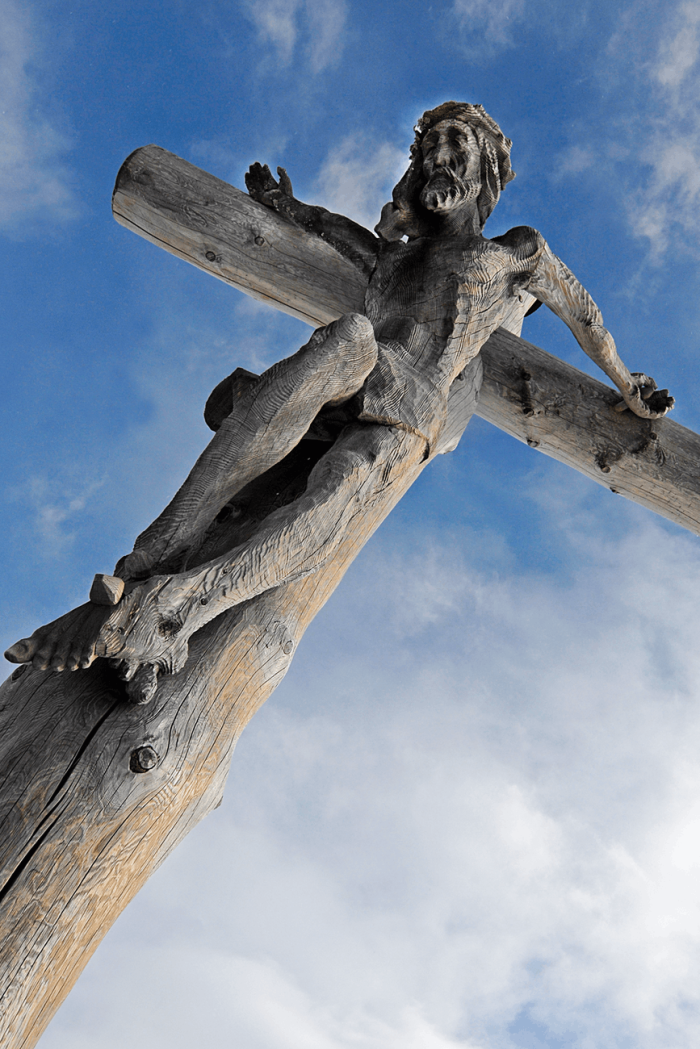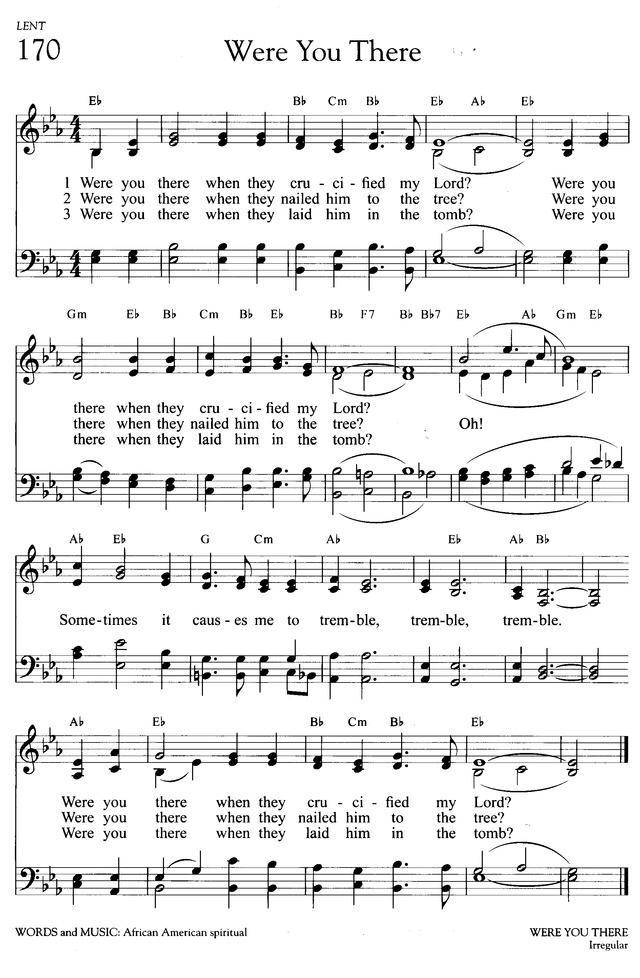 The following is a sermon I preached in Trinity chapel (Friday, January 12, 2018) that is offered as part of an interview on questions of social justice that I did for the Trinity Bible College Leadership Podcast. The audio of the sermon is included as a part of the podcast and I have also included the manuscript of the sermon for those interested (click the title below for the podcast).
The following is a sermon I preached in Trinity chapel (Friday, January 12, 2018) that is offered as part of an interview on questions of social justice that I did for the Trinity Bible College Leadership Podcast. The audio of the sermon is included as a part of the podcast and I have also included the manuscript of the sermon for those interested (click the title below for the podcast).
“Speak up for those who cannot speak for themselves…” (Prov. 31:8 NLT)
This text is brought into the canon of Israel’s scriptures and thus our own as the words of an unnamed woman giving wisdom to her son Lemuel. This text is from a message of King Lemuel’s mom to him concerning wisdom specifically to ruling as a wise king. He apparently was a Gentile king because his name is nowhere in the kings of Israel and Judah. One might suppose if he heeded these words of his mother he would be indeed a great and wise king. Now given such a beginning these words ring with truth even for those who are outside of Israel proper, but who speak with the wisdom of the God of Israel. This Gentile wisdom then becomes Israelite wisdom, by the addition of this proverb to the collection of the proverbs of Israel and then for us as Christian scripture through our incorporation into Christ Jesus. This is how we come to hear that a properly wise king must speak up for those who cannot speak for themselves. Such a king must not allow for those without a voice to be silenced or ignored. He must speak up and act justly towards everyone and particularly those who cannot speak for themselves. He must speak when they cannot, and having spoken up, he must act justly. Who exactly are these muted voices?
They are both those who are marginalized and those who are silenced. I will suggest to you by the marginalized, that they are the poor, the needy, and the homeless. I’m thinking here of widows and orphans … I’m thinking of children and the elderly. They stand outside of the mainstream as it was. I’m thinking here of minorities … I’m thinking here of foreigners living in a strange land. These are those marginalized of society. I’m also thinking not just of the marginalized, but the silenced. These are those who perhaps should or could have had a voice but no longer do, they have been disempowered for one reason or another. These are those who have been silenced by abuse. They feel as if their voice has been taken from them. And the wise king hears the words of his mother saying, “Speak up for those who cannot speak for themselves.”
They speak of the first silencing of a man at the hands of his own brother (Cain and Abel) even though his blood still cried out from the ground. They speak of Lamech seizing wives for himself in order to dominate others. They speak of the drowned out sufferings of the earth in the days of Noah resulting in the watery renovation of all of creation. They speak of the cries of the stranger suffering in the inhospitable hands of Sodom and her allies. They speak of the wailings of those under the whip “way down in Egypt land.” They speak of the oppressions of tribal Israel seeking a deliverer to save from the hands of her enemies. They speak of the later kings of Israel enslaving for their own for self-advancement. They speak of the needy downtrodden by the rich in Amos just to make houses of ivory for themselves. They speak of the exiles mocked to sing their happy songs of now desolate Zion. They speak of wives divorced and children abandoned in favor of property and titles. They speak of the voices silenced in blood by wicked powers … the silenced voices who spoke prophetically against those powers. And they speak still.
And I hear the voice of Dietrich Bonhoeffer, a German Lutheran pastor, who spoke up for those who became part of his family: the Jewish people, who actually entered into his family through marriage. And he worked for their redemption and salvation in the midst of Nazi Germany. He had his opportunity to not speak up, or speak up from a distance, but he chose to speak up in Germany and he paid with his life. And I hear the voice of Martin Luther King Jr. who had a dream for this land that still is not fulfilled. I hear his voice beckoning to a culture that would silence others … that would mute the voices of those who cry out for justice and equality. I still hear their voices.
And I even still hear the voices of the children I’ve held who climbed out of the sewers in the streets of Romania. I still hear the voices of the one destitute family searching for food in a garbage city in Mexico. I still hear the prostitutes selling their body on the streets of Brussels in an attempt to make a life for themselves. I still hear the voices of Somali war refugees begging for their bread in Northern Kenya. I still hear the voices of three Rwandan widows grappling with their survival of genocide as they told the story in my church. I still hear the voices of the homeless and the impoverished in the now silenced ghettos of Chicago. I still hear the voices of women abused by their husbands and molested in their workplaces with little to say today but “me too”. I still hear the voice of my black family and friends who fear a culture set against them. I still hear the voices of the North Dakota foster children that Jenn and I have welcome into our home who were abused and rejected by their drug addicted parents. I hear and I cannot be silent! I must speak up…
And I know from the Scriptures that such voices have made their way to heaven. And they are heard! And God is not silent! He sent such a voice crying in the wilderness on behalf of those who could not speak for themselves … a voice of preparatory repentance for the soon coming King … a voice to make the path of the Lord straight where it was crooked, to level every mountain, and fill every valley. And how can we not also cry out. God is not silent. His son our King speaks. Our righteous and wise King: He speaks. And He speaks up for the poor, and He speaks up for the children, and He speaks up for the widows, and He speaks up for the lepers, and He speaks up for the demonized, and the blind, and the mute. And He even speaks up for those like Lazarus who are too long silenced in their grave. This speaking up was taken up by His Church in her care for widows and orphans as the “true religion” of James…as the message of liberation for the nations in Paul’s writings … and even in the blood washed righteous robes of the Revelation.
How can we not also cry out with the saints gathered under the altar of God Almighty “How long, O Sovereign Lord…” We must speak up for justice in the earth! We must speak up for those whose cries for justice have not been heard, whose voices have been silenced. We must speak up!
But it is exactly at this point we find ourselves at a loss. The strength of our voices … they fail us. Our hearts are not even truly in it. We don’t even know well enough how to call out for our own justice let alone the justice of others. Our voices have been silenced in sin, marginalized in pride. We don’t know how to speak up to this Holy God. We feel the weight of our brokenness, indeed, the brokenness of the whole world and our feeble voices stammer to speak, but the words escape us and our own silence sets in.
Yet the silence does not have the last word. We praise the Lord who has heard these feeble cries and He has given His own thundering voice and it speaks for us. And we have been spoken up for by one who never ceases to speak up for us before the throne of God. Indeed, our King is not silent. We have an intercessor seated at the right hand of God who speaks up for us that we might have the justice due His goodness and mercy. He speaks up for us, even for the world. Our King speaks up. The lamb who was silent before the shearers … He has raised His voice as a lion roaring in these last days. And our King He has poured out His spirit who compels us to cry out to His Father, and now our Father knowing we have been heard and will be answered in righteousness. Our voices cannot help but speak with His voice: the voice of the son, the voice of the King of heaven and earth. We pray for ourselves. We also pray for those who do not yet know well enough to speak up to God for themselves. We speak up for the poor and the hungry, widows and orphans, homeless and foreigner. We speak up for those lost in darkness, for those abandoned and forgotten, for those whom the King Himself is not silent. Our voices joining His voice, joining their voices. We speak up and we cannot be silent. We speak up and are moved to action. The voice of righteousness finds the work of righteousness. And we hear and join our voices to the psalmist’s shout.
Honor the Lord, you sons of God;
honor the Lord for his glory and strength.
Honor the Lord for the glory of his name.
Worship the Lord in the splendor of his holiness.
The voice of the Lord echoes above the sea.
The God of glory thunders.
The Lord thunders over the mighty sea.
The voice of the Lord is powerful;
the voice of the Lord is majestic.
The voice of the Lord splits the mighty cedars;
the Lord shatters the cedars of Lebanon.
He makes Lebanon’s mountains skip like a calf;
he makes Mount Hermon leap like a young wild ox.
The voice of the Lord strikes
with bolts of lightning.
The voice of the Lord makes the barren wilderness quake;
the Lord shakes the wilderness of Kadesh.
The voice of the Lord twists mighty oaks
and strips the forests bare.
In his Temple everyone shouts, “Glory!”
The Lord rules over the floodwaters.
The Lord reigns as king forever.
The Lord gives his people strength.
The Lord blesses them with peace. (Psalm 29, NLT)
He speaks and He cannot be silenced. He speaks and gives strength, and He blesses with peace. And we shout Glory! He speaks and is heard. And those in His house shout Glory! He speaks and righteousness reigns. He speaks and His people do right and everyone in His house shouts Glory! The wise and great King speaks, and who can but answer: Glory! Glory! Glory!
Let it be, King Jesus, let it be. Hear this call today, to not let your voice be silenced or marginalized. The King speaks on your behalf. Speak boldly therefore, let your feeble voice be raised to the one who hears and speaks up for you. Let your King work justice in and for you. And let your cheerful voice be raised in unison with others who need the King to work justice for them also. Let His Spirit speak in and through you that they might know and enjoy life … that they might also find the voice of the wise and great King who speaks up on their behalf.
Here I invite you if you’d stand with me and the worship team would come. This is a short message. I’m inviting you to call on Jesus who answers. I’m inviting you to raise your voice for those who have yet to call on Jesus: Jesus who answers. We cannot be silent. We cannot be silent. King Jesus speaks and we speak also. We cannot be silent. We must speak up for those who cannot speak for themselves because Jesus does.
We speak up and we cannot be silent!
 The following is a sermon I preached for chapel at Trinity Bible College & Graduate School on Tuesday, April 10, 2018.
The following is a sermon I preached for chapel at Trinity Bible College & Graduate School on Tuesday, April 10, 2018. The following is a sermon I preached at Faith Assembly of God in Lisbon, ND on Sunday, March 25, 2018.
The following is a sermon I preached at Faith Assembly of God in Lisbon, ND on Sunday, March 25, 2018.
 The following is a sermon I preached in Trinity chapel (Friday, January 12, 2018) that is offered as part of an interview on questions of social justice that I did for the Trinity Bible College Leadership Podcast. The audio of the sermon is included as a part of the podcast and I have also included the manuscript of the sermon for those interested (click the title below for the podcast).
The following is a sermon I preached in Trinity chapel (Friday, January 12, 2018) that is offered as part of an interview on questions of social justice that I did for the Trinity Bible College Leadership Podcast. The audio of the sermon is included as a part of the podcast and I have also included the manuscript of the sermon for those interested (click the title below for the podcast).
 The following is a sermon I preached in the Trinity Bible College & Graduate School chapel on November 8, 2017:
The following is a sermon I preached in the Trinity Bible College & Graduate School chapel on November 8, 2017: 
